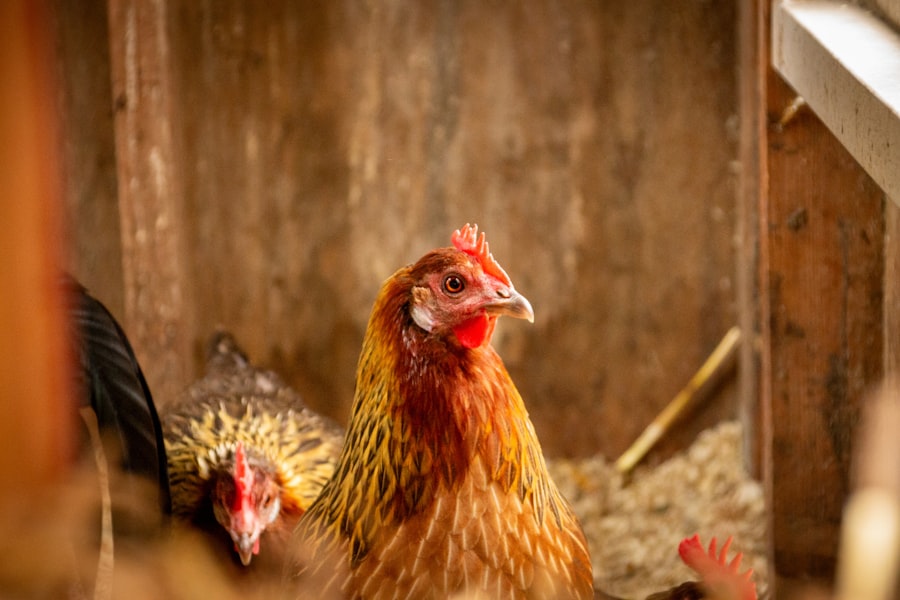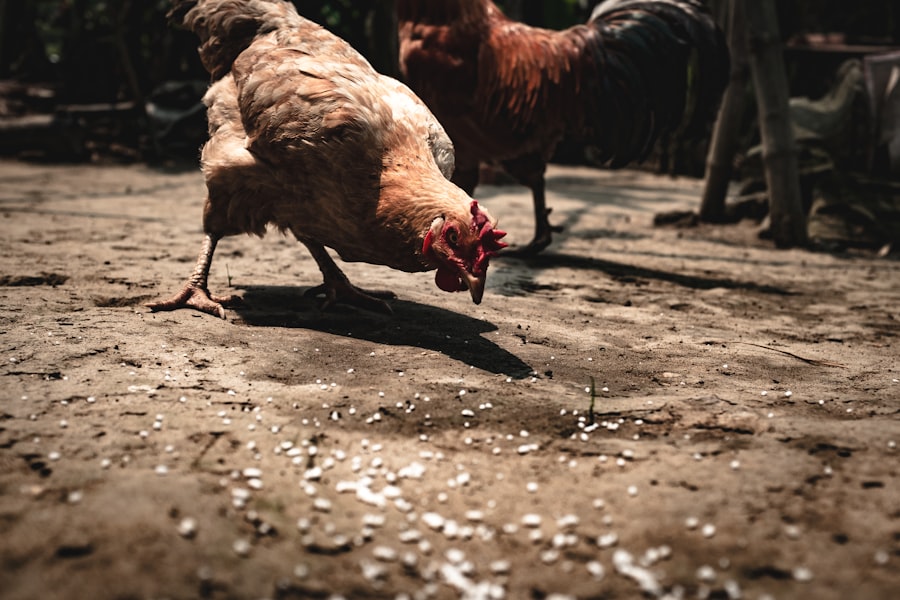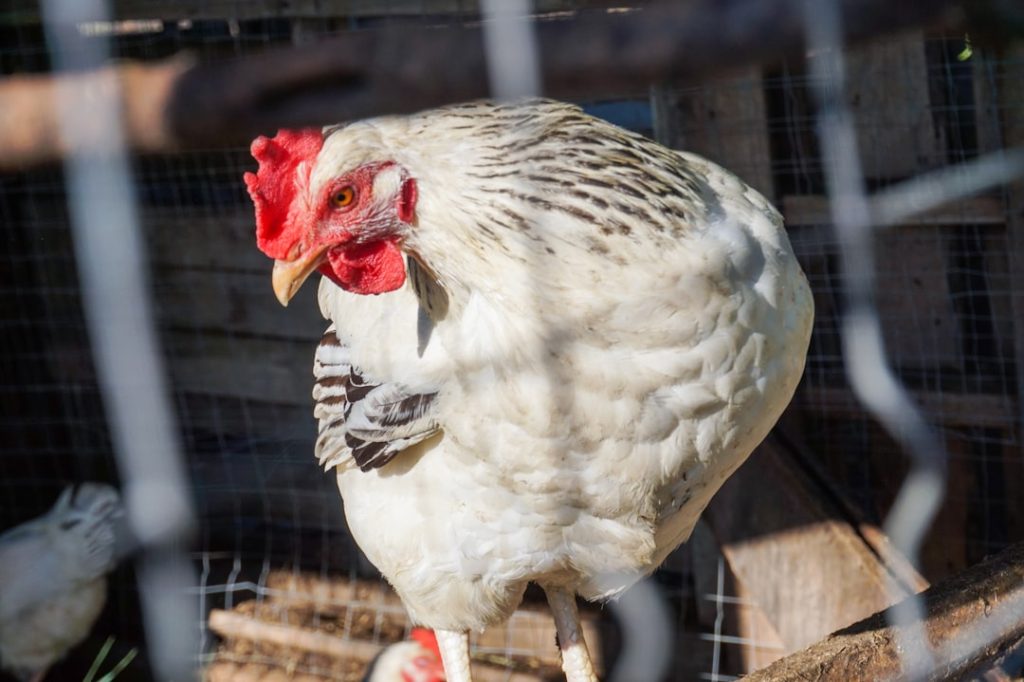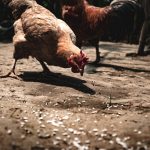Keeping chickens in Aberdeen offers numerous benefits for residents. Backyard chickens provide a sustainable source of fresh eggs, which typically contain higher levels of omega-3 fatty acids and vitamin D compared to commercially produced eggs. Chicken manure serves as an excellent fertilizer for gardens, being rich in essential plant nutrients such as nitrogen, phosphorus, and potassium.
Chickens contribute to household waste reduction by consuming kitchen scraps and leftovers, which simultaneously decreases the amount of waste sent to landfills and reduces expenses on chicken feed. This practice aligns with sustainable living principles and promotes a more eco-friendly lifestyle. Beyond practical advantages, chicken-keeping can be an enjoyable and educational experience.
Chickens exhibit distinct personalities and behaviors, providing entertainment and companionship for their owners. Many individuals find satisfaction in caring for these birds and observing their daily activities. In conclusion, maintaining a backyard flock in Aberdeen can be a rewarding endeavor that combines sustainability, self-sufficiency, and a unique connection to nature while benefiting the household in multiple ways.
Table of Contents
- 1 Choosing the Right Breed of Chickens for Your Aberdeen Home
- 2 Setting Up a Coop and Run for Your Chickens in Aberdeen
- 3 Feeding and Caring for Your Chickens in Aberdeen’s Climate
- 4 Dealing with Predators and Pests in Aberdeen when Keeping Chickens
- 5 Health and Veterinary Care for Your Chickens in Aberdeen
- 6 Selling Eggs and Other Products from Your Aberdeen Chicken Flock
- 7 FAQs
- 7.1 What are the regulations for keeping chickens in Aberdeen?
- 7.2 What are the benefits of keeping chickens in Aberdeen?
- 7.3 What do I need to consider before keeping chickens in Aberdeen?
- 7.4 What are some common challenges of keeping chickens in Aberdeen?
- 7.5 What are some tips for keeping chickens in Aberdeen?
Key Takeaways
- Keeping chickens in Aberdeen provides a sustainable source of fresh eggs and natural pest control for your garden.
- Choose chicken breeds that are well-suited to Aberdeen’s climate and have good egg-laying capabilities.
- Set up a secure coop and run to protect your chickens from Aberdeen’s harsh weather and local predators.
- Provide a balanced diet and proper care to ensure the health and well-being of your chickens in Aberdeen’s climate.
- Implement measures to protect your chickens from predators and pests commonly found in Aberdeen, such as foxes and rats.
Choosing the Right Breed of Chickens for Your Aberdeen Home
Climate Considerations
Aberdeen’s maritime climate, characterized by mild summers and cool winters, demands breeds that can thrive in colder temperatures.
Breeds for Egg Production
If a steady supply of fresh eggs is your primary goal, choose breeds renowned for their high egg-laying capabilities, such as the Rhode Island Red, Leghorn, and Australorp.
Space and Other Considerations
For those with limited backyard space, smaller breeds like bantams may be a better fit, requiring less space and suitable for urban or suburban settings. Ultimately, the right breed for your Aberdeen home will depend on your specific needs and preferences, making research and careful selection crucial.
Setting Up a Coop and Run for Your Chickens in Aberdeen

Setting up a coop and run for your chickens in Aberdeen is an essential step in providing them with a safe and comfortable living environment. When designing a coop, it’s important to consider the size of your flock and ensure that there is enough space for each chicken to roost, nest, and move around comfortably. The coop should also be well-ventilated to prevent moisture buildup and allow for proper air circulation, especially in Aberdeen’s damp climate.
In addition to the coop, you’ll also need to set up a secure outdoor run where your chickens can exercise and forage. The run should be enclosed with sturdy fencing to protect your chickens from predators such as foxes, raccoons, and birds of prey. It’s also important to provide shade and shelter within the run to protect your chickens from the elements.
When setting up a coop and run for your chickens in Aberdeen, it’s crucial to prioritize their safety and well-being by creating a secure and comfortable living space that meets their needs.
Feeding and Caring for Your Chickens in Aberdeen’s Climate
Feeding and caring for your chickens in Aberdeen’s climate requires careful attention to their dietary needs and well-being. In the cooler months, it’s important to provide your chickens with a balanced diet that meets their nutritional requirements and helps them stay healthy and warm. This may include supplementing their diet with grains, seeds, and protein-rich foods to support their energy needs during colder weather.
Additionally, it’s important to ensure that your chickens have access to fresh water at all times, as dehydration can be a concern in Aberdeen’s dry winter months. You may need to use heated waterers or check water sources frequently to prevent freezing. In the summer, it’s important to provide shade and cool areas for your chickens to prevent heat stress.
You can also offer frozen treats such as fruits and vegetables to help keep your chickens cool and hydrated during hot weather. Overall, feeding and caring for your chickens in Aberdeen’s climate requires attentiveness to their dietary needs and environmental conditions throughout the year. By providing them with a balanced diet, access to fresh water, and appropriate shelter, you can help ensure that your chickens thrive in Aberdeen’s changing weather patterns.
Dealing with Predators and Pests in Aberdeen when Keeping Chickens
Dealing with predators and pests is an important aspect of keeping chickens in Aberdeen, as the local wildlife can pose a threat to your flock. Common predators in Aberdeen may include foxes, raccoons, birds of prey, and even domestic pets such as cats and dogs. To protect your chickens from these threats, it’s essential to secure their coop and run with sturdy fencing and predator-proofing measures such as hardware cloth and locks.
In addition to predators, pests such as mites, lice, and rodents can also be a concern when keeping chickens in Aberdeen. Regular cleaning and maintenance of the coop and run can help prevent pest infestations, as well as using natural pest control methods such as diatomaceous earth or herbs like lavender and mint. It’s important to monitor your flock for signs of pests and take proactive measures to keep them healthy and comfortable.
By being vigilant about predator and pest management, you can help ensure the safety and well-being of your chickens in Aberdeen. Taking proactive steps to secure their living environment and prevent infestations will help create a safe and healthy space for your flock to thrive.
Health and Veterinary Care for Your Chickens in Aberdeen

Creating a Clean Living Environment
In addition to veterinary care, providing a clean living environment for your chickens is crucial for preventing disease and promoting good health. Regular cleaning of the coop and run, as well as proper waste management, can help reduce the risk of bacterial or parasitic infections. It’s also important to practice good biosecurity measures such as limiting exposure to wild birds and other poultry flocks to prevent the spread of diseases.
Preventing Disease and Promoting Good Health
By prioritizing health and veterinary care for your chickens, you can help ensure that they lead long, healthy lives. Being proactive about disease prevention and seeking veterinary care when needed will help keep your flock happy and thriving.
The Importance of Proactive Care
Regular health checks, vaccinations, and parasite control measures are all crucial components of a proactive approach to chicken health. By staying on top of these important tasks, you can help prevent diseases from taking hold and ensure that your chickens remain healthy and productive.
Selling Eggs and Other Products from Your Aberdeen Chicken Flock
If you have a surplus of eggs from your chicken flock in Aberdeen, selling them can be a great way to share the bounty with others while also earning some extra income. There are several options for selling eggs locally, including farmers’ markets, community-supported agriculture (CSA) programs, or directly to neighbors and friends. Before selling eggs, it’s important to familiarize yourself with local regulations regarding egg sales to ensure compliance with food safety laws.
In addition to eggs, you may also have other products from your chicken flock that you can sell or share with others. For example, chicken manure is a valuable fertilizer that can be used in gardening or farming, while feathers can be used for crafts or insulation. By finding creative ways to utilize all aspects of your chicken flock, you can maximize the benefits of keeping chickens in Aberdeen.
Overall, selling eggs and other products from your chicken flock can be a rewarding way to share the fruits of your labor with others while also contributing to the local economy. Whether you choose to sell eggs at a farmers’ market or share surplus products with friends and neighbors, there are many opportunities to make the most of your chicken flock in Aberdeen.
If you’re interested in keeping chickens in Aberdeen, you might also want to check out this article on creating a chicken coop with a trampoline. It’s a fun and innovative way to provide entertainment and exercise for your feathered friends while also keeping them safe and secure.
FAQs
What are the regulations for keeping chickens in Aberdeen?
In Aberdeen, there are regulations in place for keeping chickens, including restrictions on the number of chickens allowed, coop requirements, and distance from neighboring properties.
What are the benefits of keeping chickens in Aberdeen?
Keeping chickens in Aberdeen can provide a sustainable source of fresh eggs, natural pest control, and fertilizer for gardens. It also offers the opportunity to connect with nature and teach responsibility to children.
What do I need to consider before keeping chickens in Aberdeen?
Before keeping chickens in Aberdeen, it’s important to consider the space available, local regulations, predator protection, and the time and effort required for daily care and maintenance.
What are some common challenges of keeping chickens in Aberdeen?
Common challenges of keeping chickens in Aberdeen include predator attacks, disease prevention, and managing waste. Additionally, extreme weather conditions can also pose challenges for chicken keepers.
What are some tips for keeping chickens in Aberdeen?
Some tips for keeping chickens in Aberdeen include providing a secure coop and run, offering a balanced diet, monitoring for signs of illness, and providing regular access to fresh water. It’s also important to consider the welfare and enrichment of the chickens.
Meet Walter, the feathered-friend fanatic of Florida! Nestled in the sunshine state, Walter struts through life with his feathered companions, clucking his way to happiness. With a coop that’s fancier than a five-star hotel, he’s the Don Juan of the chicken world. When he’s not teaching his hens to do the cha-cha, you’ll find him in a heated debate with his prized rooster, Sir Clucks-a-Lot. Walter’s poultry passion is no yolk; he’s the sunny-side-up guy you never knew you needed in your flock of friends!







